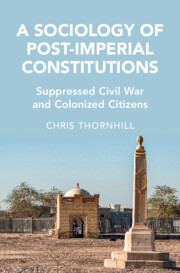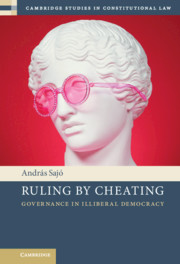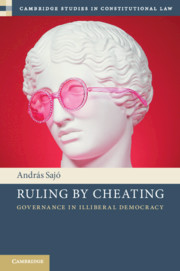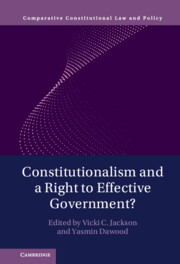A Sociology of Post-Imperial Constitutions
Covering the period from the eighteenth century to the present, A Sociology of Post-Imperial Constitutions combines global history and historical legal sociology to explain how democratic constitutions were created by imperialism and military policies related to imperialism. It challenges common views about the relation between democracy and peace, examining how, in different locations and different periods, the constitutional ordering of citizenship both reflected and perpetuated warfare. It also isolates the features of constitutional systems that have been successful in obviating military violence, separating democracy from its military origins. It discusses how the emergence of democratic government after 1945 depended on a dialectical transformation of the war/law nexus in constitutional rule. It then assesses ways in which, and the reasons why, many contemporary constitutions have begun to remilitarize their societies and to rearticulate military constructs of legitimacy.
- Uses a global-historical lens to show how constitutions developed in the context of imperialism
- Challenges standard accounts of the relation between democracy and war
- Contains normative suggestions for insulating constitutional rule against violence
Reviews & endorsements
‘… already has attributes that qualify it for the status of a future classic in the Sociology of Law. … Thornhill’s new work consolidates, almost definitively, a strong argument about the historical and sociological centrality of empires in the understanding of constitutions, as well as the almost invariable centrality of armies and manifestations of militarism in awakening dynamics of citizenship construction, visibly based on the transition from the figure of the soldier to the form of the citizen. After this book, we can say that all projects that aim to address issues such as the sociological and historical foundations of citizenship can no longer ignore the functional meanings produced by empires and their armies. Otherwise, they will risk conducting legal or political inquiries that just touch the surface of phenomena that are now understood as central to the understanding of democracy.’ Guilherme de Azevedo, Revista de Estudos Constitucionais, Hermenêutica e Teoria do Direito
Product details
December 2024Hardback
9781316513941
580 pages
236 × 160 × 34 mm
0.984kg
Available
Table of Contents
- 1. Imperialism and the origins of constitutions
- 2. Constitutions and the persistence of empires
- 3. Imperialism and global civil war
- 4. Imperial nations in the Iberian region
- 5. Military constitutions in and after the Ottoman empire
- 6. World law and occupation constitutions
- 7. The occupation constitution II: changing security constitutions
- 8. The occupation constitution III: constitutions without war
- 9. Constitutions after war
- 10. New security constitutions.







.jpg)